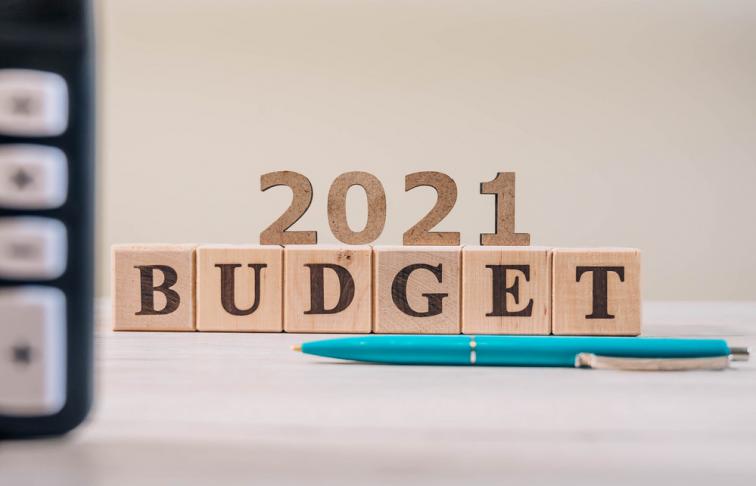Manage your account and see your money through our mobile banking app or on your computer through our website.


The economy is rebounding from the impact of COVID more quickly than economists expected and is forecast to return to pre-COVID levels by 2022. This is encouraging news for the Chancellor because it gives him more money to spend in the Budget. Below is how he plans to spend that money, how he plans to raise more, and how this may affect you.
There are certain economic factors that could impact us all. The first of these is inflation, or a general rise in the price level of an economy. The Office for Budget Responsibility (OBR) predicts that inflation is likely to rise to an average of 4% over the coming year, meaning that goods and services will become more expensive. The second factor is the rising cost of domestic gas and electricity.
If you receive benefits
The Chancellor has cut the Universal Credit (UC) taper rate to 55%, so if you receive UC and earn above the work allowance, you will be able to keep more of the money you earn. Currently, you keep 37p of every pound you earn above the work allowance: £293 if including housing support, £515 if not. From December 1, this amount will rise to 45p in the pound.
If you work
Some workers of all ages are set to receive a pay rise as the National Living Wage increases across the board. The biggest benefactors will be workers aged 23 and above. From April 2022 the following National Living Wage increases will come into effect:
If you receive a pension
The state pension will rise by 3.1% in the 2022-23 tax year, but this increase is not determined by the triple lock guarantee. The triple lock increases your state pension each year by whichever of the following is greater: average earnings; or prices as measured by the consumer price index; or 2.5%. The government has suspended the triple lock for the 2022-23 tax year.
If you drive
Fueling your car is currently more expensive than it has been for eight years. The planned rise in fuel duty, which would have increased that figure further, has been cancelled. About 60% of the price you pay for fuel is tax - a mixture of fuel duty and VAT.
If you drive an electric car that you charge at home, your costs will also increase as domestic electricity becomes more expensive.
If you own a business
If your business is one of those that the government recognised as being affected by the impact of COVID, such as those in the retail, hospitality, and leisure sectors, you will receive a temporary business rates discount in 2022-23. This will be up to 50% with a limit of £110,000. This tax cut is believed to be worth £1.7billion.
If you’re a parent
If you have pre-school children, you may benefit from the £300million made available for ‘Start for Life’ parenting programmes, designed to support parents through the first 1,001 days of their child’s life. One of the things the money will create is 75 additional ‘family hubs’ across England, where you and your family can access services in one place.
If your children are in school, by 2024-25 £4.7billion has been pledged. Almost £2billion of new funding will be allocated to help schools and colleges to recover from the pandemic, the equivalent of a per pupil cash increase of more than £1,500.
If you’re a tax payer
Another tax change that was announced in the Chancellor’s first Budget this year – 3 March 2021 – may impact you more now than previously: the freezing of the income tax thresholds at April 2021 levels, for five years. If you receive a pay rise as described above, you may find yourself pushed into a higher tax band than you are in currently (unless you live in Scotland, which has different levels).
The rise in National Insurance (NI), also announced in the previous Budget, has yet to come into effect. From next April, employees, employers and the self-employed will all pay 1.25p more in the pound designed to fund social care.